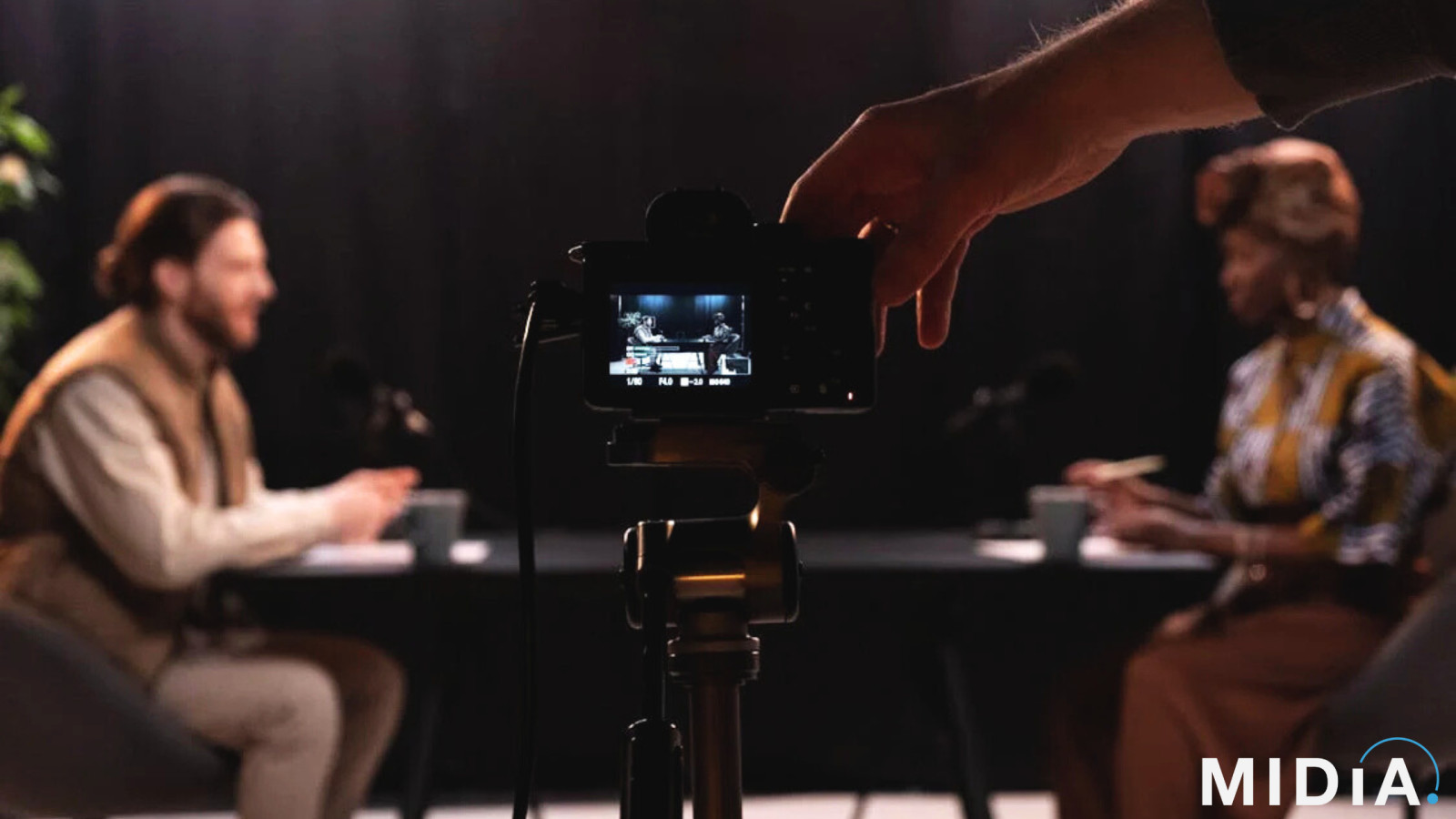Content creators are disrupting entertainment’s obsession with rights. What does it mean for music?

Photo: Cottonbro Studio

Last week, Spotify announced a suite of new monetisation features for video creators. Yes, you read that right — Spotify has expanded not just beyond music, but also beyond audio itself. Although the video offerings are initially geared towards video podcasters, the company has rebranded its Spotify for Podcasters hub to Spotify for Creators, opening the door for the possibility of catering to video creators more generally (à la YouTube).
Under Spotify’s new Partner Program, eligible audio and video podcast creators earn a 50% share of ad revenue each time an ad (monetised by Spotify) plays in an episode on and off the platform. Creators also unlock Premium video revenue when subscribers in select markets stream video episodes (which will now be ad-free). “The greater the number of fans who watch or listen to your podcast, the more creators can earn,” reads the announcement. This follows Spotify’s previous launch of podcast comments and individual podcast subscriptions.
Rights-centred versus non-rights-centred content explainedSpotify’s new monetisation and engagement features for podcasters are sure to hit artists with a jab of envy. After all, why should they not receive the same treatment? The answer to that question brings to light the growing divergence between traditional entertainment formats like music and film, which are centred around rights, and emerging ones like podcasting and content creation, which are not:
Rights-centred: When platforms host music (and film / TV), they must pay to licence it, and negotiate with large rights holder conglomerates to do so — whose interests are not always totally aligned with the interests of the artists they represent. So, even if a platform like Spotify might want to add new features or monetisation tools for artists, their ability to do so depends on the willingness and licensing terms of major rights holders
Non-rights-centred: When platforms host podcasts and user-generated video or other social content, they often do not pay to licence it, instead operating on revenue share bases. Platforms have the flexibility to define features and monetisation mechanisms themselves, and individual creators can simply opt in
It is easy to see how, over time, platforms are incentivised to deepen their relationships with non-rights-centred content. This is accelerated by the fragmentation of entertainment consumption. Today it is still important for platforms to host the “hits”, which are rights-centred (e.g., major label artists, Friends). However, newer, so-called “long-tail” content is taking up more share of consumption — and that is a good thing for platforms, as it reduces their reliance on the more expensive, rights-centred content.
Featured Report
The future of creator apps Fuelling engagement with fandom
The AI boom has unleashed a wave of creator tools, but some are struggling to make the transition from interesting and experimental to compulsive and essential. Fandom offers a solution by tying creation to a consumer’s personal passion, appetite for community engagement and a desire to have a stake in the entertainment they love.
Find out more…So, content-hosting platforms have two strategic plays:
Strategy 1: Buy, build, or partner with rights-centred content, so the platform becomes the rights holder or partner. Examples include Apple (Platoon, Apple TV+ originals), TikTok (SoundOn), and Amazon (which has its own original content across film, TV, games, and audiobooks)
Strategy 2: Grow and expand the presence of non-rights-centred content, as Spotify is now doing. But a better example is TikTok, the first major entertainment platform made up entirely of non-rights-centred content. (No, TikTok is not a social platform — just ask its executives)
It is not just the platforms making strategic plays. More artists are realising that, unfortunately, rights-centred monetisation can often benefit big companies with large catalogues more than it can benefit individual artists. So, those envious of video creators’ monetisation models are simply becoming video creators themselves. We do not hear about them as often, because 1. They do not fit the traditional definition of what we think of as a music artist, and 2. They are often niche successes. But there are a growing number of them, as our music creator survey highlights. There are also a growing number of songwriters who, realising that the slow trickle of publishing royalties will never sustain their day-to-day needs, are shifting focus to sell their songwriting skills as works-for-hire in marketplaces like Soundbetter, bypassing rights-based monetisation entirely.
What the future holds for content creators and platformsAre podcasting, video content creation, and other “non-rights-centred” formats shortchanged by the lack of a licensing structure? Yes and no. At least in the US, their creations are still protected by intellectual property law and it could be argued that revenue-sharing agreements, akin to what Spotify is offering, function as licensing fees. However, these creators’ greatest weakness is part of what attracts platforms to them in the first place: they lack collective bargaining power. Platforms can design features and monetisation models as they see fit, and while creators always have the option to leave, there is not always a clear alternative for them.
Of course, modern podcasting and professional content creation are still relatively new industries, and we will surely see monetisation evolve, with the potential for new ownership models to be built around them. There are already examples in companies like Spotter, which provides guidance and capital to content creators including MrBeast (Amazon just invested), and Create Music Group, an artist and label services company that was early in prioritising content creation. It is hard not to wonder whether what we are witnessing is the entertainment world being knocked off its rights-centric axis –– or at least beginning to teeter.

There are comments on this post join the discussion.